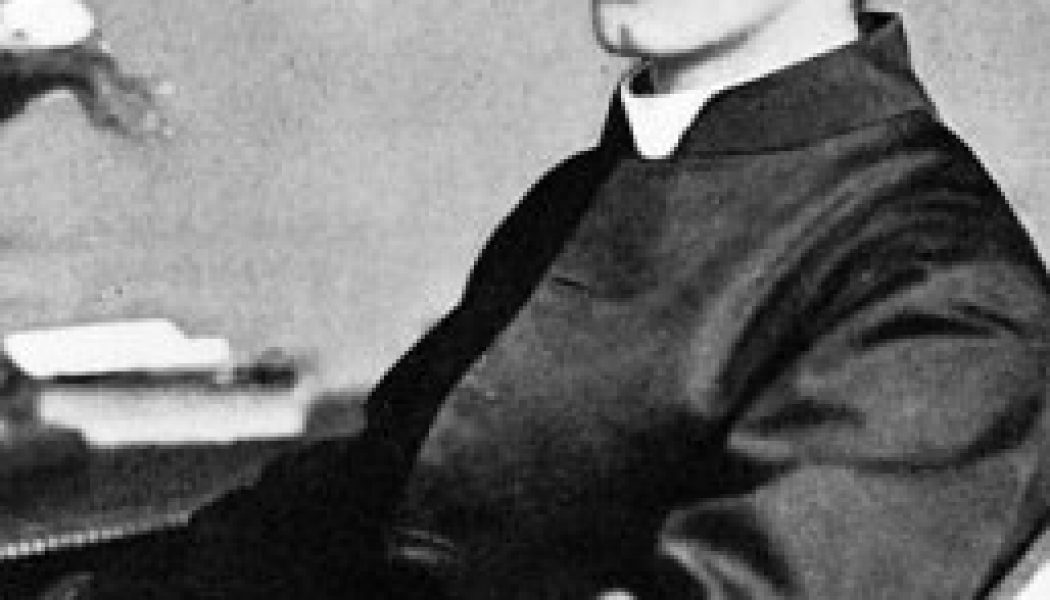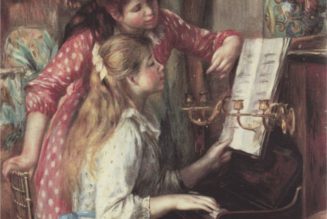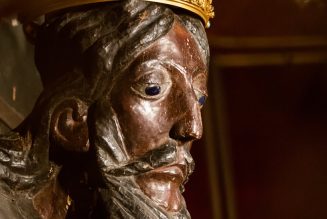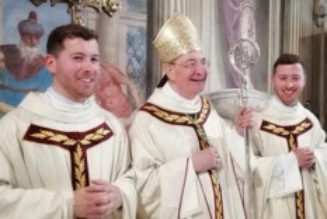
Gerard Manley Hopkins (1844-89), an Oxford convert mentored by St. John Henry Newman, stands among the greatest Catholic poets in the English language. After teaching at Newman’s oratory in Birmingham, Hopkins entered the Jesuits and, after numerous teaching positions in Britain, was sent as a professor of Greek and Latin to the university Newman founded in Dublin, The Catholic University of Ireland, where he died prematurely. Hopkins lived in Victorian England and Ireland and witnessed the social and environmental changes that accompanied the Industrial Revolution.
The economic changes of this revolution stand for more than mere external change. The movements of modern secularism had begun to transform the daily life of the average person–explosions of cities and the social problems that accompanied it, such as poverty, alcoholism, and crime. It also saw the rise of secular ideologies such as materialistic Darwinism and atheistic philosophies epitomized by Nietzsche. All of these changes pointed to a confused and, using Hopkins’ word, “bleared” world, devoid of a sacramental expression pointing to the divine.
In 1877, shortly before his ordination, Hopkins’ wrote what may be his most famous poem, “God’s Grandeur.” It clearly comes from Hopkins’ own deep love of nature and shock at the effects of industrialism, seen through a deep sacramental vision:
The world is charged with the grandeur of God.
It will flame out, like shining from shook foil;
It gathers to a greatness, like the ooze of oil
Crushed. Why do men then now not reck his rod?
Generations have trod, have trod, have trod;
And all is seared with trade; bleared, smeared with toil;
And wears man’s smudge and shares man’s smell: the soil
Is bare now, nor can foot feel, being shod.
And for all this, nature is never spent;
There lives the dearest freshness deep down things;
And though the last lights off the black West went
Oh, morning, at the brown brink eastward, springs —
Because the Holy Ghost over the bent
World broods with warm breast and with ah! bright wings.
The world itself serves as sacrament, with God’s grandeur shining out from it, and evoking oil, itself used in the sacraments. Modern society denies this sacramentality, turning from the rod of the Cross with the earth itself suffering the effects. Yet, even in the midst of this self-imposed darkness, nature continues to point to its maker, who, in turn, continues to visit it with maternal care.
In my second visit to Denver Art Museum’s exhibit, Monet: The Truth of Nature, my mind turned to Hopkins in front of Monet’s 1903 painting, “Waterloo Bridge, Sunlight Effect.”

Although Monet did not paint with an explicitly sacramental imagination, but rather offered a more subjective impression of the world, he captures the same England that Hopkins’ witnessed twenty-six years earlier: bleared and smeared. Yet, even within the modern world’s smog, that can leave it in seeming isolation from God, light continues to shine. As we continue to turn off the lights in the West, dawn arises again, and will, so long as we are willing to look. My eyes focus on the island in the foreground, itself is covered with the morning fog, and imagine experiencing the single patch of sunlight fighting through the surrounding smog. Like Hopkins’ poem, the painting offers encouragement.
I took my wife to the exhibit for her birthday, and, in speaking of pairing things to Monet’s painting, I must share the last one of the exhibit, “Corner of the Water Lily Pond” (1918-19) with which Anne pairs quite nicely!










